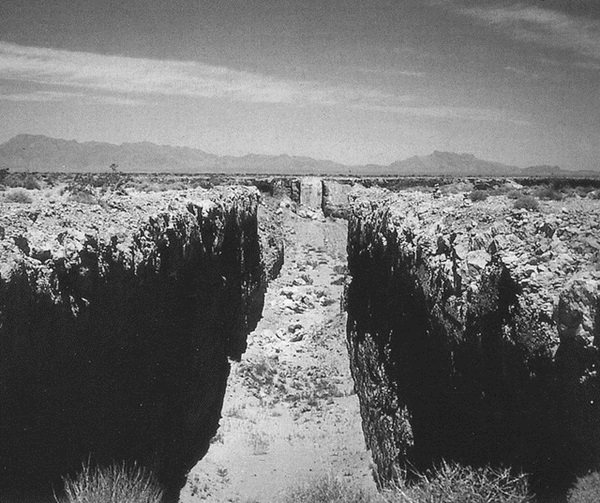Art World
Harry Reid Wants to Save Michael Heizer’s Massive Land Art Installation


Josh Niland

Newly reelected Nevada senator Harry Reid has introduced a bill that would protect land art made by Nevada native Michael Heizer, the Las Vegas Review-Journal reports.
Reid introduced the bill on September 16 with the intent of preserving an 800,000 acre swath of land at the edge of Nevada’s Lincoln County that houses the 70-year-old artist’s work. The new bill isn’t the senator’s first attempt at legislation that would affect Heizer’s installations.
In 2010 Reid introduced a similar measure that failed to garner enough support in Congress. The Senate majority leader previously opposed a 2005 Department of Energy proposal to build a rail line that would carry nuclear waste from nearby Yucca mountain. Reid also toured the area in 2007 and has since held discussions with Heizer, who lives in Lincoln County.
Heizer started installing his 457-meter-long piece titled “Double Negative” there in 1969. In 1983 the piece was donated (with Heizer’s blessing) to the Museum of Contemporary Art, Los Angeles (MoCA) by the now-defunct Dwan Gallery, which had previously acquired the 60-acre plot of land that the work sits on.
Three years after he completed “Double Negative,” Heizer began work on a second massive installation, “City,” which is a complex of structures that Los Angeles County Museum of Art (LACMA) director Michael Govan told the Review-Journal is, in his estimation, “one of the greatest, most ambitious artworks ever attempted.”
“City,” which is roughly the same size as the National Mall in D.C., would be the piece most affected by Reid’s proposed bill, as it occupies part of the the 1,205-square-mile area that straddles both Lincoln and neighboring Nye counties, as specified in the bill’s text.
Heizer has said that he wants the pieces to be reclaimed by nature eventually, and Reid’s proposal would prevent any man-made incursions on the space by designating the land surrounding it as a national conservation area. So far, Reid stands as the bill’s only sponsor and faces the prospect of tougher opposition from the Senate Committee on Energy and Natural Resources, which could see a substantial far-right turnover following last night’s disastrous midterm elections.